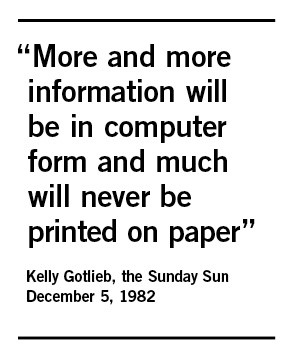"Digital Display” Assets

I’m sorry. Every time I hear the word “Digital” I think of the 1985 hit “Digital Display” by the band Ready for the World. Please understand that I was an easily influenced high schooler at the time and I am sure I liked that song during my immature youth. Yes. I am embarrassed. This is no song for the ages and neither should your digital assets be.
In recent years, a new category of assets has appeared on the scene, which can be more complicated to pass on at someone’s death than real estate, stocks, bonds or cash. The list includes such valuable property as digital domain names, social media accounts, websites and blogs that you manage, and pretty much anything stored on the cloud. In addition, if you were to die tomorrow, would your heirs know the passcodes to access your iPad or smartphone? Or, for that matter, your email account or the Amazon.com or iTunes shopping accounts you’ve set up? Would they know how to shut down your Facebook account, or would it live on after your death?
I am fully aware that for many of our more senior clients none of this applies. But for our pre-retiree and recent retirees much of this is applicable. Consider the following for your digital estate plan:
- Create a list of your digital assets
- Facebook, Twitter, LinkedIn, email accounts, banking site, credit cards, paypal, amazon, photos, music utilities, hotel points,and airline sites for frequent flyer miles. I am certain I have missed some.
- Make sure you have recorded the websites, userids, and passwords of each of these sites. Without this information it will be much more difficult to close down these sites.
- As an example, click here to find out how to delete a Facebook account when someone dies.
- Your will
- Most of your digital assets cannot pass through your will because they are not your property. You licensed them. Yet, you can leave instructions to your executor so you can have a plan for them after your death.
- Store this information securely
- You can place this information in your safety deposit box, a firebox at home, or store it securely on the Raymond James Investor Access Vault (ask us about this new feature!).
- “Digital” Executor
- Make sure your executor knows where this information is stored so they can act on it.
The point here is that even if you know who would be bequeathed your house and retirement assets if you were hit by a bus tomorrow, you could still be leaving a mess to your heirs unless you clean up your digital assets as well.
Thank you for the trust and confidence you have placed in us and giving us the opportunity to provide education to you on your way to building your wealth.
As always, thank you for the introduction of your friends and family that so many of you have made. We are honored to serve you! As a service to our clients, we are happy to act as a sounding board for your friends and family. If any of them should need a second opinion on their financial situation, introduce them to www.striblingwhalen.com or call us at 678-989-0048.
Follow us on Twitter - @brianedwhalen
Regards,
Warren D. Stribling, IV, CFP®
Principal
warren.stribling@striblingwhalen.com
Brian E. Whalen, CFP®, CIMA®
Principal
brian.whalen@striblingwhalen.com
If you would like to unsubscribe to these messages, please reply with UNSUBSCRIBE in the subject line
Sources:
http://www.nextavenue.org/5-steps-creating-your-digital-estate-plan/
http://www.nolo.com/legal-encyclopedia/a-plan-your-digital-legacy.html
The foregoing information has been obtained from sources considered to be reliable, but we do not guarantee that it is accurate or complete, it is not a statement of all available data necessary for making an investment decision, and it does not constitute a recommendation. Any opinions are those of Brian Whalen and Warren Stribling and not necessarily those of Raymond James. Links are being provided for information purposes only. Raymond James is not affiliated with and does not endorse, authorize or sponsor any of the listed websites or their respective sponsors. Raymond James is not responsible for the content of any website or the collection or use of information regarding any website's users and/or members. Raymond James Financial Services, Inc. does not provide advice on legal issues. These matters should be discussed with the appropriate professional.
Links are being provided for information purposes only. Raymond James is not affiliated with and does not endorse, authorize or sponsor any of the listed websites or their respective sponsors. Raymond James is not responsible for the content of any website or the collection or use of information regarding any website's users and/or members.
Certified Financial Planner Board of Standards Inc. owns the certification marks CFP®, CERTIFIED FINANCIAL PLANNER™ and CFP® in the U.S.

